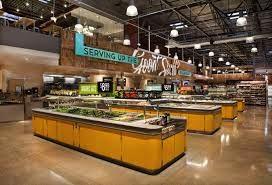 Whole Foods Market has announced an initiative to develop in-house kitchens to stock their deli and bakery counters. Currently, the company outsources the preparation of these items.
Whole Foods Market has announced an initiative to develop in-house kitchens to stock their deli and bakery counters. Currently, the company outsources the preparation of these items.
Under the ownership of Amazon, management has experimented with a number of store formats and policies without achieving traction in the grocery segment. Whole Foods Market has, in large measure, retained its image of a high-end supermarket and has not shed the “whole paycheck” perception. The preeminence of the chain has been eroded by competitors who have developed destination stores with products and features similar to Whole Foods Market and in some cases, providing higher quality but with superior value.

There are serious questions as to the financial success of the Whole Foods chain since the acquisition. There is a paucity of data in the quarterly reports released by parent company Amazon.com. Flip-flopping regarding the status of Amazon Fresh and Amazon Go suggest a lack of vision albeit with some application of technology to Whole Foods stores. A recent decision to close a prestige downtown San Francisco store only one year after a much-heralded opening suggests a lack of focus and deficiencies in strategy and planning. The stated reason for closure that the Company could not protect workers appears flimsy given alternative action available